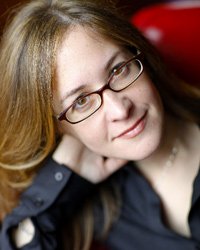Looking into someone’s eyes for 10 seconds straight is a daunting task. It yanks you unceremoniously out of your comfort zone, invades your personal space and makes even the most self-assured among us question the authenticity of our alleged sense of confidence.
But here’s the question: Can staring into someone’s deep blues enable compassion? Can it foster a sense of mutuality and lead to healthy dialogue? Can it help build a bridge between two divergent communities?
Those were the questions at the heart of an afternoon workshop on the fourth day of the Ariane De Rothschild Foundation Fellowship at Cambridge University. Focused on humanities studies, social entrepreneurship and promoting dialogue between Muslim and Jewish communities, twenty-five social entrepreneurs from all walks of life and parts of the globe descended upon this historic university in the UK for two weeks of intensive learning, discourse and engagement.
There are many distinctions among us, to be sure, but there are many similarities too. For one thing, we’re all entrepreneurs working on ventures dedicated to meeting social challenges. For another, 95% of us are either of the Muslim or Jewish faith. And three, we’re each open and striving to leverage the powerful tools of dialogue toward effecting change.
Those similarities gives this ADR Fellowship a most unique mission, part pragmatic, part aspirational. Thanks to its multi-pronged curriculum, our days have been filled with a dizzying array of content, including visits to social enterprises, a mosque and a synagogue in London, lectures on building sustainable businesses, the concepts of jihad and tolerance and workshops on compassionate listening.
Which brings me back to the exercise. After about eight long seconds of staring into the bespectacled eyes of a Fellow, the impact of the session hit me. It’s a powerful thing to look intently into someone’s eyes, without words, without commentary, without apologies – without options. One’s eyes truly are the window to one’s soul, after all. And today the point was to connect not with our head – and its varied reactions, defenses and judgments – but with an organ that often gets buried by the former: our heart.
It wasn’t easy.
And the exercises that followed wouldn’t be much easier. For three minutes each, we were asked to turn to a Fellow closest to us and share our biggest challenges, before turning to another to divulge what makes us feel most alive and then to a third to express what it is we left behind in order to be here. “I’ve left behind my comfort zone, the space that allows me to feel safe surrounded by people with similar worldviews and beliefs and its avoidance of conflict,” I stated in response to the third question, in a moment of rare openness that even took me by surprise. Instinctvely, I wanted to take the words back. Or make a joke, my traditional response to moments of vulnerability.
I opened my mouth again, a stream of comedic defenses at the ready. But then I stopped. The warm eyes smiling back at me beneath a light-blue headscarf reminded me of why we were here and why pushing beyond our comfort zones was not only valuable but imperative if we wanted to move dialogue forward. I looked back into her eyes, my truth out there, my vulnerability dangling perilously above the silence, despite conscious efforts to contain it. Nodding in gratitude to her compassion, I walked toward the next exercise of vulnerability, inspired by the roomful of possibilities.
I’m no dreamer. We’re not talking world peace here – yet. But here’s how I see it: if compassionate listening can promote vulnerability, openness and a sense of shared values and understanding among communities whose traditional form of engagement is one of divergence, pain and reactivity, chances are good the next steps can emerge. And then the next. One ADR Fellow at a time.
Elisa Birnbaum is the co-founder, publisher and editor-in-chief of SEE Change Magazine, and works as a freelance journalist, producer and communications consultant. She is also the president of Elle Communications.

